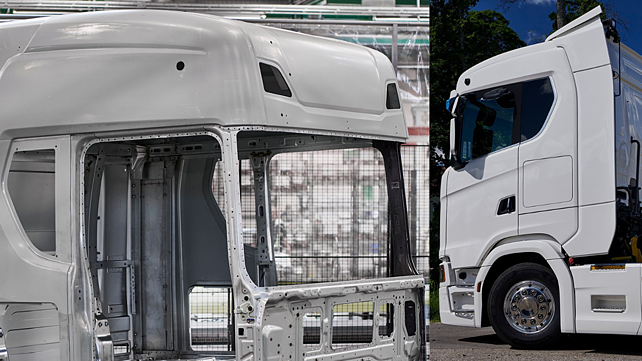
Targeting customers of high-end and long-distance trucks, Scania has introduced R and S series cabs that are 270mm longer than the existing range of cabs.
The extra space is created by adding existing cab components, which was possible thanks to Scania’ modular system. The first deliveries to customers are scheduled to take place in Q32021.
Produced exclusively by Scania’s subsidiary Laxa Special Vehicles, the new cab renders premium driver comfort. Besides, it will also offer opportunities for other applications, such as accommodating crews, driving schools, recovery trucks with passenger seats etc.
Stefan Dorski, Senior Vice President, Head of Scania Trucks, said that with the introduction of CR23 and CS23, the company raises the bar for premium trucks even highe. “We will blend some of the capabilities from our Scania CrewCab into our premium cabs in the R and S series. By doing that we add generous space that brings extra comfort and opens up for a multitude of creative solutions,” he added.
The truck maker’s decision to offer prolonged cabs built in small series is based on persistent demand from several markets about cabs with added longitudinal space. The premium S-series is sporting a flat floor and is already accepted by the customers for its spaciousness. With the added length, it will become something of a dream cab for those long-distance drivers who spend many nights away from home. For instance, the drivers can have an expandable bed that is 100 cm wide without retracting it.
The addition of 27 centimetres to the initial length of 200 cm (measured from the pedals to the rear wall) may sound minor but not, states the company. It represents an increase of more than 13%, something that makes a difference and opens up many ingenious solutions.
Dorski said whether they use the space for getting more roominess in general or for selecting a wider bed – or both – remains to be seen. Other users can be found in applications such as driving schools, defence trucks and recovery trucks. The latter will be able to transport passengers from broken vehicles, he added.
The company plans to have these cabs certified with WVTA - Whole Vehicle Type Approval - in Q4 this year. Some countries will initially have these vehicles certified separately on their respective markets, Dorski added.